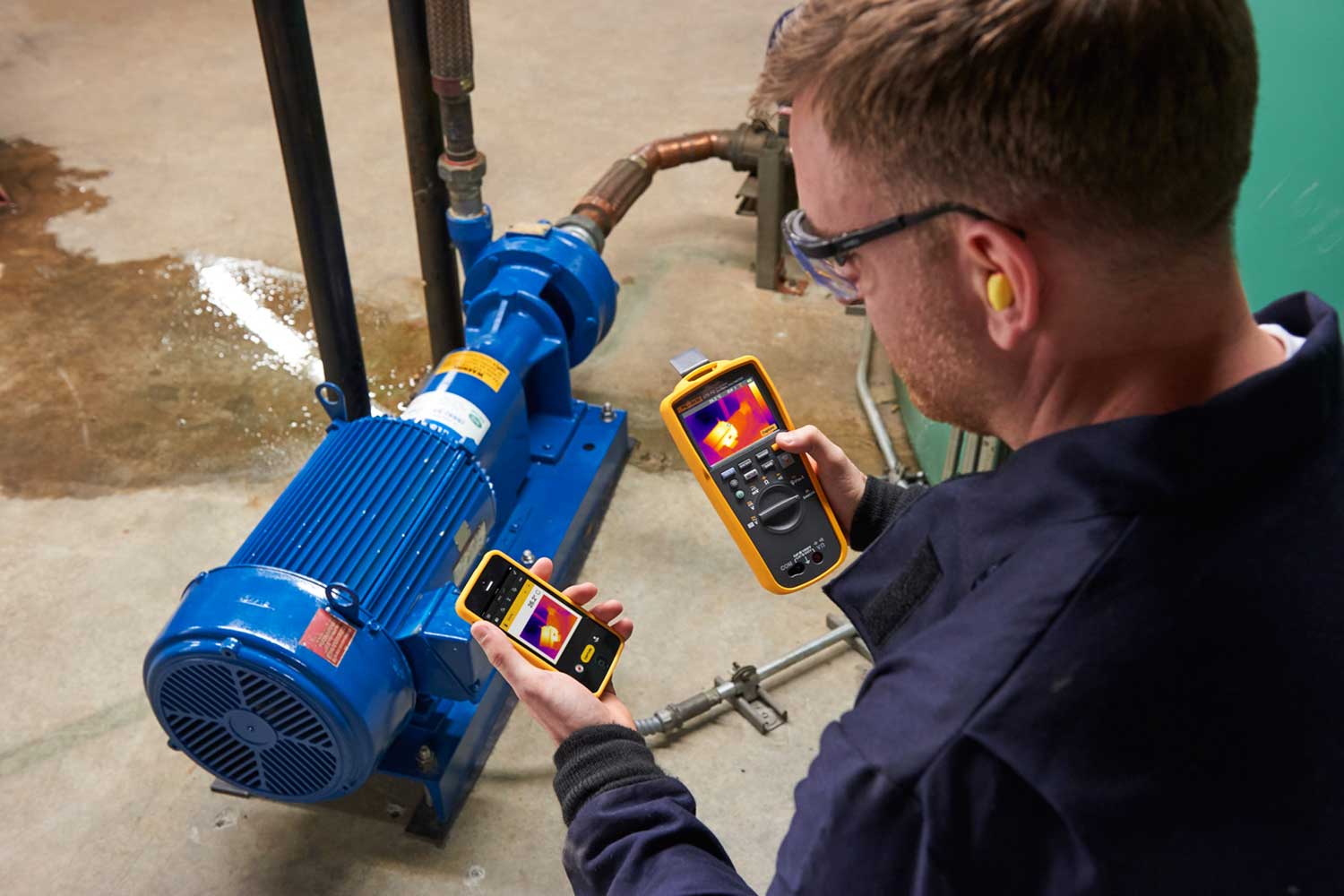Troubleshoot the Problem
Problem: A large turbine pump keeps going down before it achieves full power.
Action: Locate the problem area.
- While the pump is still running use the 279 FC Thermal Multimeter to do a quick thermal survey using the IR camera to look for hotspots at the panel, disconnect and the pump motor itself.
- If something looks unusual, press save using the Fluke Connect® button and note the location. If nothing looks unusual increase the speed of the pump until it fails while surveying for hot spots at the panel, disconnect and pump.
- If something is found, save the image and note the location.

Action: Use the multimeter capabilities to diagnose the problem.
- Put on the appropriate PPE and now use the 279 FC Thermal Multimeter and the iFlex® current loop to examine each of the three phase currents that supply the pump or at least the one phase that may have been identified as suspect during the thermal survey when the pump failed.
- Once the iFlex® is connected, meter readings can be monitored from a safe distance using the Fluke Connect app.
- Use the 279 FC’s Min/Max function to capture max current of the pump while running.
- Increase the speed of the pump until it fails.
- Note the max current reading on the meter display and save it.
- If the phase reading was outside of normal, use additional tests to determine whether the issue was due to a supply problem, connection or the pump itself.
- With readings saved in the Fluke Connect app you can now create a report or send the information to the customer or your office for further documentation if needed.
Validate the Repair
Situation: A loose connection was found and repaired in a 480 V control panel.
Action: After determining that a loose connection was the cause of a control panel problem, and repairing it, you can use the 279 FC Thermal Multimeter to validate that the repair was successful.
- Set the dial on the 279 FC to “IR camera” mode.
- After energizing the panel following safety guidelines, scan the area where the repair was made. The image and center point temperature value should show that the repaired area is within the normal temperature range.
- If the scan shows a normal temperature, save the thermal image to your meter and use Fluke Connect® to send it to a PC, a smartphone and/or to the Fluke Cloud™.
- Create a report with the image to document that the repair was successful.
- If the heat map shows the area is still warmer than the normal temperature range, you will need to conduct further testing with either the multimeter or additional tools such as an insulation multimeter or power quality analyzer.